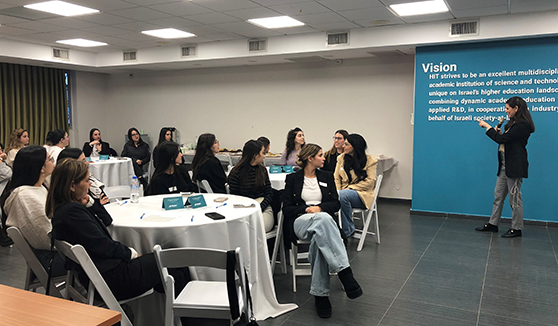More:
English as a Foreign Language
The HIT English as a Foreign Language Department is dedicated to developing students' English language skills for academic and professional purposes.
The focus is on enhancing reading skills to enable students to comprehend academic texts in their study areas using appropriate vocabulary, grammar, and rhetorical conventions. Special emphasis is placed on learning the language structure as a basis for effective reading. Moreover, we put special emphasis on improving students' writing and presentation skills required for successful careers in hi-tech and design jobs.
The EFL courses teach students to read critically, which includes understanding the cultural and historical context, and acquiring skills needed to analyze, interpret, and evaluate academic articles.
All the four language skills (listening, reading, speaking, and writing) are developed across the levels to help students attain fluency and accuracy in academic speaking and writing, preparing them for communication in English as 21st century professionals.
HIT Students have diverse cultural and educational backgrounds, and their academic majors are as varied as Design and Engineering. These differences carry with them divergent professional interests, cognitive styles, and initial linguistic capacities and habits. The EFL Department is dedicated to developing diverse methods and implementing flexible teaching practices in order to meet these challenges, and hence to fulfill HIT’s obligation to provide equal opportunities in higher education for all its students.
In recent years, we have introduced various changes in the Department's courses, in view of the rapid cultural changes in today’s linguistic eco-systems, shifting requirements for efficient career management, as well as students' diversified intellectual and cultural profiles.
The main changes in our mission and goals are:
- Placing a greater emphasis on the development of speaking skills for academic and professional purposes;
- Integrating performance-based learning (PBL) in the courses along with skills-based approach to instruction and learning;
- Developing discipline-related bibliographical and vocabulary skills;
- Providing students with career-management tools;
- Maintaining an on-going process of updating learning materials (texts, exercises, quizzes, and tests), in accordance with changes in the English medium environment;
- News & Events



